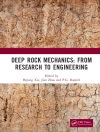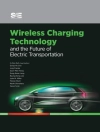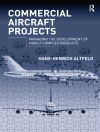This book details three main topics: the screening and characterization of hydrocarbons from air, soil and water; technologies in the biodegradation of hydrocarbons; and the bioconversion of hydrocarbons for biofuel/chemicals, as well as recent developments in the remediation of hydrocarbons and their environmental benefits. The first section focuses on screening methods, qualitative and quantitative analysis of hydrocarbons from soil, air and water environments, speciation of hydrocarbons, and natural bioremediation strategies in such environments. The second section examines technologies for removing hydrocarbon contaminants from various environments, especially advanced technologies for the removal of hydrocarbons and in-situ and ex-situ remediation strategies and problems, as well as concrete case studies. The last section, covering the bioconversion of hydrocarbons for biofuel/chemicals, highlights the biochemicals and bioproducts developed from hydrocarbons, with a particular focus on biochemical and chemical technologies used to produce biopolymers, biofuel precursors and commodity chemicals from hydrocarbons.
विषयसूची
Marine and Estuarine Environments.- Industrial Environments.- Urban Environments.- Natural Emissions.- In-situ remediation of hydrocarbons.- Ex-situ remediation of hydrocarbons.- Advanced remediation technologies.- Biopolymers from hydrocarbons.- Biofuels from hydrocarbons.- Biochemicals from hydrocarbons.- Techno-economics and LCA analysis.
लेखक के बारे में
Prof. Kirsten Heimann is the director of the North Queensland Algal Identification/Culturing Facility at JCU, Townsville, Australia, where she leads a microalgal research team focusing on developing microalgae for carbon dioxide and waste water remediation whilst generating valuable co-products. Her research interests include methane remediation from underground coal mines.
Dr. Obuli Kartik is a senior post-doctoral research fellow at the James Cook University in Australia. His current research is focusing on developing a dual culture system for remediating methane emissions from coal mines. Producing value added products from biomass and waste gas is also given focus in this research project. Other research interests are bio-mining of metals, black shale characterization from marine environment, bacterial community profiling in great barrier reef, etc.
Dr. Subramanian Senthilkannan is currently working for SGS as a global sustainability consultant, based at Hong Kong. He gained his diploma, bachelors and masters in Textile Technology from premier institutes of India. He was awarded doctorate from The Institute of Textiles and Clothing of The Hong Kong Polytechnic University for his dissertation entitled, ” Eco-functional Assessment of Grocery Shopping Bags” He also has more than seven years of industrial experience in textile manufacturing, testing and sustainability evaluation of textiles and clothing materials. He was an outstanding student throughout his studies and bagged numerous awards and medals including many gold medals in his study period. He has more than 75 academic publications in various textiles and environmental journals to his credit. Additionally he has 2 patents, 2 books of chapter and 13 books and numerous conference publications. He is acting as an editor, editorial board member and reviewer for many international peer-reviewed journals of textiles and environmental science disciplines. He is the editor-in-chiefof Textiles and Clothing Sustainability journal of Springer. Additionally, he is one of the directors of Textile and Bioengineering Informatics Society, (TBIS) which is a charitable organization created to foster, develop and promote all aspects of science and technology in bioengineering of materials, fibers and textiles.












